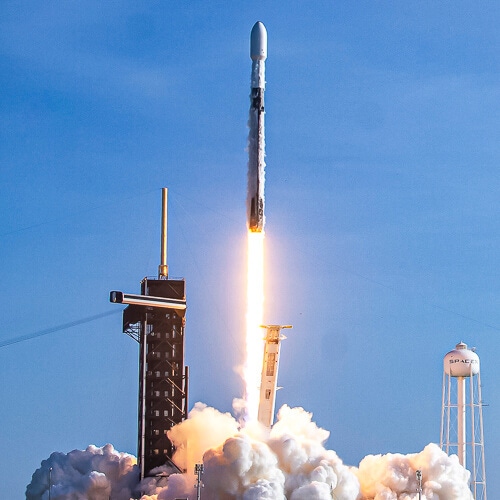
Just when you take your eye off it, the broadband space race heats up.
On the one hand, there's Elon Musk, announcing SpaceX's Starlink will emerge from its "Better Than Nothing Beta" next month.
Meanwhile, the EU has cracked open the door to investing in its British rival OneWeb.
Brussels sprouts interest
There's not an excess of cooperation these days between London and Brussels.
So it might come as a surprise when the European Commission invites industry players to send in their thoughts on buying a minority stake in the London-backed satellite broadband company.
But small scrapes across the English Channel are small beans, in the EU's eyes, compared with the broader need to keep Europe from falling behind the US, China and Russia in satellite broadband.
Canada's Telesat could be another potential destination for investment, but it seems more likely to be OneWeb.
If Brussels decides to take the route of pursuing a minority stake, it would probably find itself pushing against an open door.
OneWeb's executive chairman Sunil Mittal has repeatedly turned to Brussels about the possibilities of collaboration.
French-backed satellite operator Eutelsat (where Paris has a 20% stake) paid £395 million (US$540 million) for a 24% stake in OneWeb earlier this year, while Airbus has taken a 50% stake in OneWeb's satellite manufacturing operation.
Bye bye, beta
Meanwhile, you might have wondered just how much we live in an age when celebrity CEOs make important corporate announcements by tweet.
To answer your question, Elon Musk revealed in a tweeted reply that Starlink will exit its "Better Than Nothing Beta," in his words, "next month."
It's been taking pre-orders already for its post-beta service. These are in addition to the 100,000 current users in a dozen countries who today access satellite broadband from Starlink's constellation of 1,700 satellites.
Over half a million people had placed an order or put down a deposit for the service by May, said the company.
Want to know more about 5G? Check out our dedicated 5G content channel here on Light Reading.
There will be capacity limits for the service in densely populated urban areas, said Musk, presenting more of a challenge when the user numbers hit "the several million user range." To boost its capacity on the other end, the company has been speeding up its production of user terminals.
Currently the company has permission from US regulators to deploy 1 million user terminals and is seeking permission to up this to 5 million.
Amazon and Viasat, meanwhile, have been urging the FCC to take a dim view of Musk's proposals for an expanded Starlink. Naturally, both companies have plans for their own satellite constellations.
The beta price has consisted of a one-off $499 for the router, terminal and mounting terminal, plus a monthly $99 to subscribe to the service.
There is speculation pricing might change when the service moves out of beta, but no word from Starlink about this yet.
And the promise of satellite broadband, for unlocking new corners of the world, has meanwhile started to seize some people's imagination.
"It's crazy that with an iPhone, a little Starlink antenna, and a solar power unit, you could live in an isolated cave in the mountains (or on a raft in the middle of the Pacific) and get a world-class education, start a business or art career, & make friends all around the world," tweeted writer Tim Urban last week.
Related posts:
— Pádraig Belton, contributing editor special to Light Reading
Read more about:
EuropeAbout the Author(s)
You May Also Like











